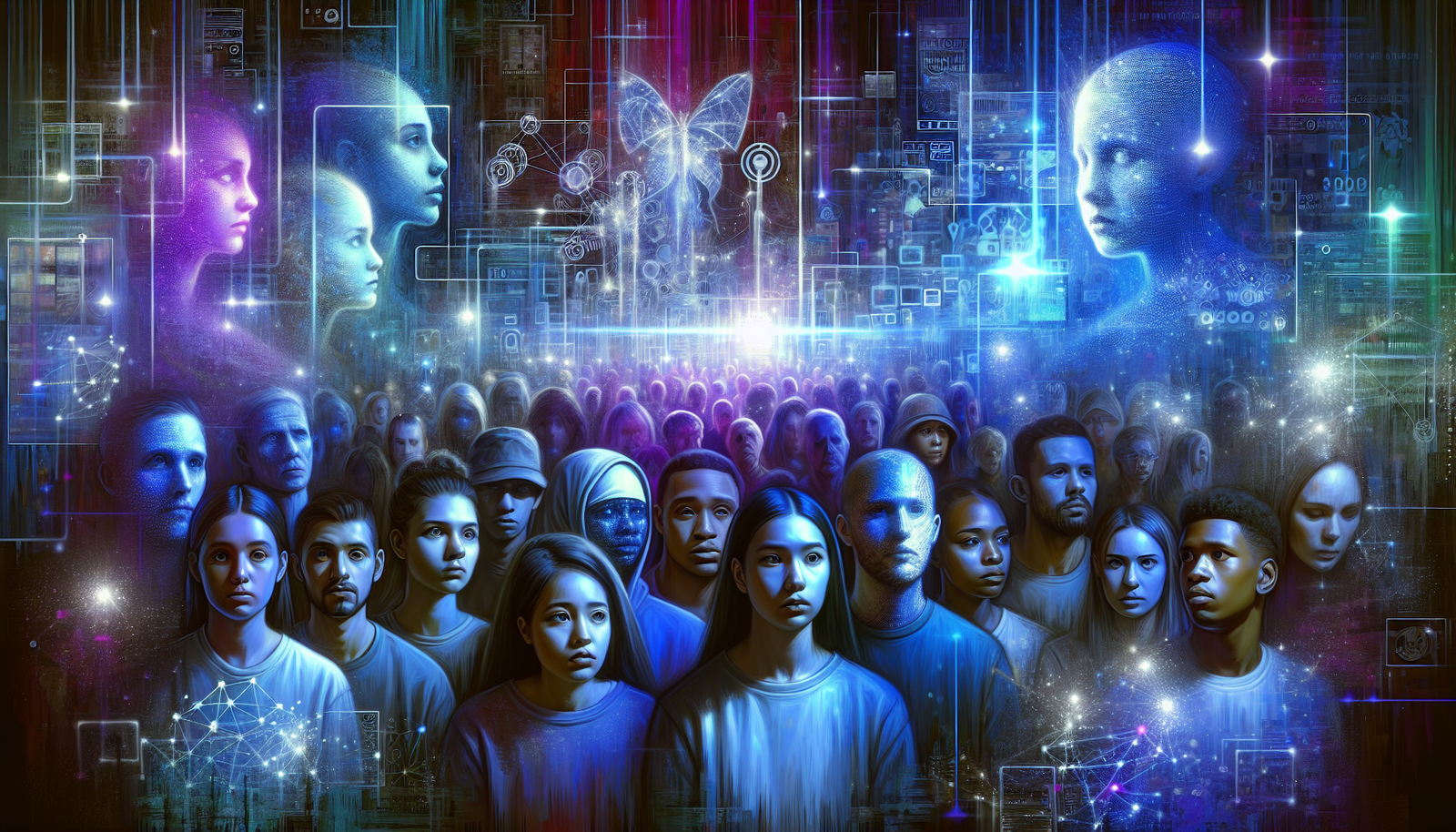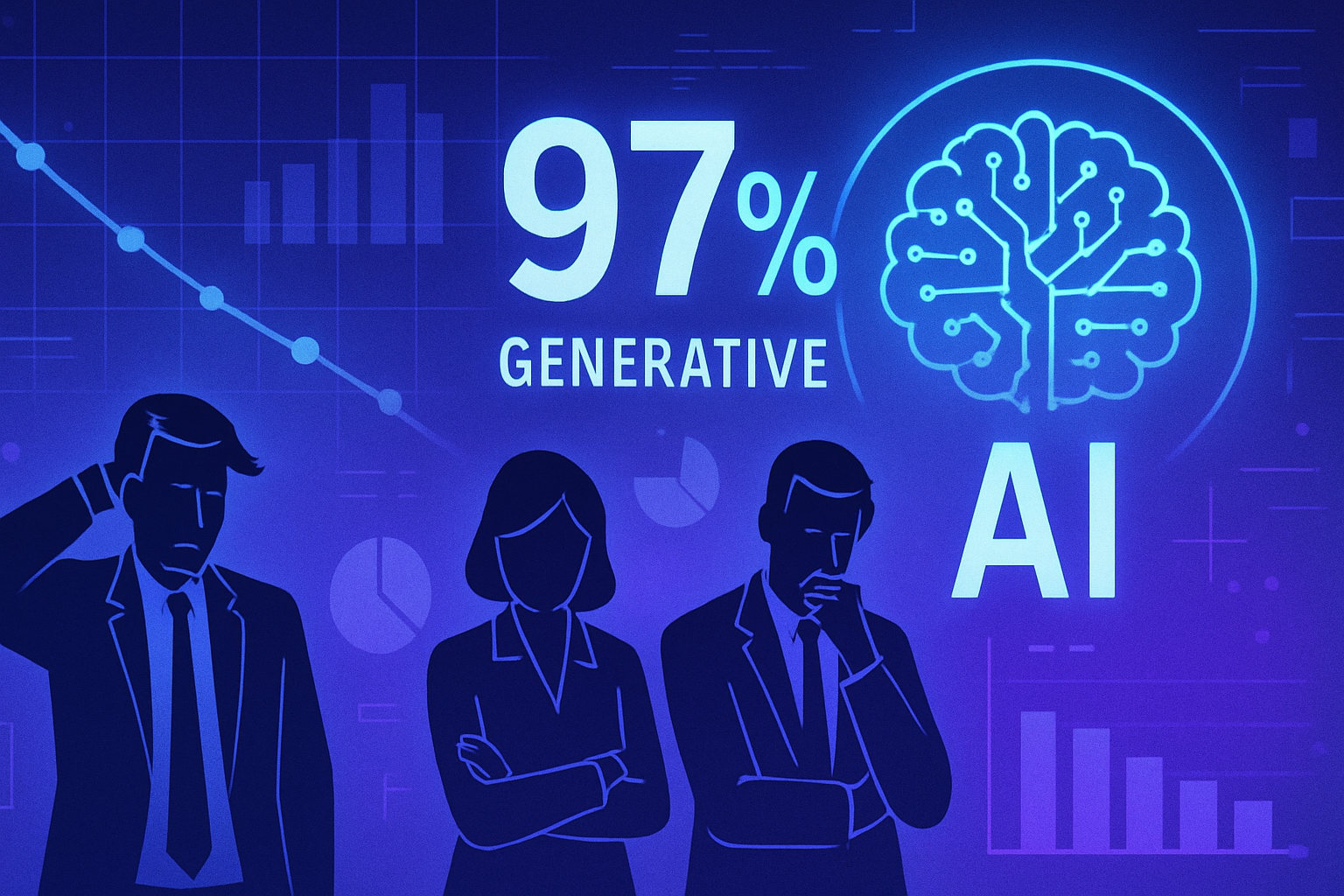The fear of rejection insidiously settles in the minds of young people. *Algorithms today define* their educational and professional paths, creating an abyss of frustration. These digital tools, meant to simplify the search for opportunities, generate fear and disillusionment. *Generation Z feels an unprecedented isolation*, often perceived as “the ghosted generation.” Faced with the difficulty of asserting themselves in a world of conditioned choices, they become spectators of a system that ignores them. *Understanding their anxiety and resilience* is essential to grasp the current issues of the educational and professional landscape.
An omnipresent feeling of rejection
Generation Z, made up of young people born between 1997 and 2012, deeply suffers from the effects of algorithms. Platforms like Mon Master and Parcoursup determine the professional paths of many students, sparking concerns embedded at the very core of their identity. This digital legacy, omnipresent and often dehumanizing, generates a deep sense of abandonment.
Algorithms as determinants of the future
Young generations are forced to submit their aspirations to the coldness of algorithms. Orientation choices, especially in higher education, are guided by automated systems that do not take individual particularities into account. This lack of human interaction creates a gap between these students and the traditional educational process. A student testifies: “It feels like we only exist for the numbers.”
The clash of expectations and realities
The contrast between personal ambitions and the ruthless responses of platforms generates crises of confidence. Many, like Shona, feel immense disappointment when their choices are systematically rejected. Repeated failures feed a cycle of anxiety and distress, amplifying the psychological challenges that today’s youth must face.
A generation facing a sharp transition
It is difficult for young people to navigate this ocean of uncertainties. What choices must they make when their dreams are constantly tested by a machine? The implications of these systems go beyond simple academic decisions and extend to the emotional well-being of students. This disconnect between expectations and reality highlights how destabilizing the modern world can be.
Automated responses: a symptom of isolation
The automated responses from platforms testify to the lack of empathy present in the selection process. The indifference of algorithms provokes a feeling of isolation among students. The disillusionment with systems that treat them as numbers rather than individuals intensifies their distress. Media outlets are beginning to label this approach as “the ghosted generation,” illustrating how these young people are sidelined from decision-making processes. The stakes of algorithms continue to reshape the educational landscape.
Reactions and future perspectives
In light of this dynamic, various experts are examining the consequences of the digital age on youth. The need to integrate more human and less rigid models proves crucial for bridging this gap. Innovations could emerge to give young people a voice in their professional orientation, thus fostering personal growth. The critical question remains: how to establish a balance between technology and humanity to offer a more promising future to Generation Z?
Reflective pathways for necessary evolution
The collective awareness of the issues related to the use of algorithms opens avenues for reflection. Initiatives aimed at holding platforms accountable and integrating human values into the decision-making process appear promising. Every voice counts in the debate about the future of education, and the concerns of youth must resonate in the decisions made regarding them. Reforming the current approach could transform the lives of thousands of students.
For a complete reading and to better understand the impact of algorithms on youth, the articles explore similar cases and societal responses to these challenges. The awareness surrounding digital isolation foreshadows necessary changes in the relationship between individuals and algorithms.
FAQ: The sidelined generation and the fear of rejection in the age of algorithms
How do algorithms impact the self-perception of Generation Z members?
Algorithms influence how Generation Z perceives themselves by reinforcing feelings of rejection when they fail to meet the criteria of platforms. The automation of choices can create a sense of invisibility and anxiety about the future, as their personal worth seems to be reduced to numbers.
What are the main fears related to rejection caused by digital platforms?
Young people from Generation Z often fear rejection that can stem from unsuccessful applications on platforms like Parcoursup or Mon Master. This creates anxiety about their professional and academic futures and a fear of not living up to expectations.
How does the feeling of abandonment manifest in this generation in the face of algorithms?
This feeling of abandonment is manifested by impersonal automated responses, which can leave candidates in uncertainty. The absence of personalized feedback reinforces the idea that they are “ghosted” and not taken into account, heightening their anxiety and despair.
What advice can help young people overcome the fear of rejection linked to digital platforms?
Young people are advised to focus on long-term goals and diversify their applications to reduce expectations. Participating in support groups or sharing their experiences can also help them feel less alone in their challenges.
How does the performance culture on social media affect the mental health of Generation Z?
The relentless pursuit of validation on social media can lead to low self-esteem, as Generation Z members often compare their success to that of others. This exacerbates their anxiety about rejection and can lead to mental health issues, such as depression.
Why is it important to address the issue of algorithmic rejection among young people?
Addressing this issue is crucial to understanding the complex dynamics that young people experience. By discussing the effects of algorithmic rejection, strategies can be developed for equitable access to opportunities and to support the mental well-being of youth in the face of digital challenges.






